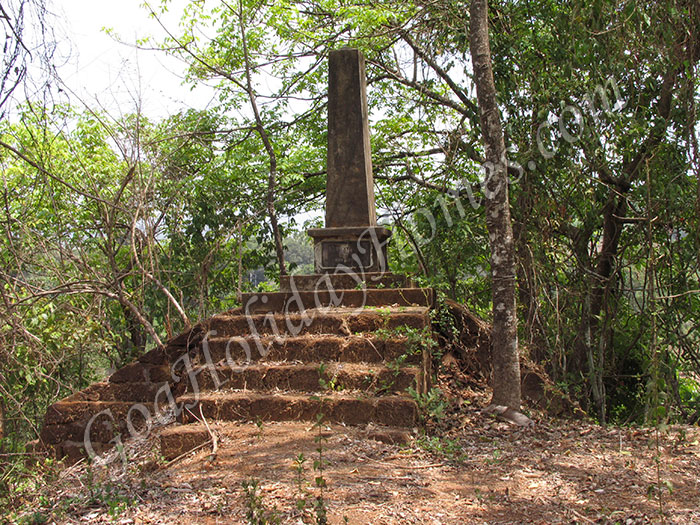The Ranes in Goa
The Portuguese acquired a new foe in the Ranes when they captured Satari in North Eastern Goa as part of their new conquests. The Ranes who are originally a martial clan from Rajputana were the erstwhile rulers of the area. They inflicted heavy losses on the Portuguese, by organizing over a dozen rebellions from 1740 to 1912.
The most formidable of these went on for over three years and was led by Dipaji Rane (now a legend in Goan history) in 1852. He made the Nanus fortress his military base on the Madhei River after capturing it. He also ejected the Portuguese from Satari, Quepem and Canacona with the help of the local chieftain.
In 1869 Kushtoba Rane organized another revolt, and attacked and burned police stations for two years. In 1871 killing Portuguese soldiers, he was shot dead.
In 1895, due to orders to leave the Indian shores for Mozambique, the Hindu sepoys (soldiers) of Portuguese army revolted. (This is also known as 'Soldiers Mutiny'). The Nanus fort was captured in September by soldiers from Quepem, along with those from Panaji barracks. Dada Rane soon captured the fort of Halarna after he assumed the leadership of the revolt. In October the soldiers then attacked Bicholim and looted the government treasury after they marched to Mapusa. The whole of north Goa came under complete control of Dada Rane for the next four or five days.
The army failed to crush the revolt even after the government declared Martial Law. Even Dom Afonso Henrique the Portuguese prince had to face a humiliating defeat after he arrived in Goa on November 13 with 500 soldiers. With the peace treaty signed by the government in September 1897 with the Ranes, Dada Rane absorbed most of the revolting soldiers in the Maratha battalion, which he forced the Portuguese army to establish.
The Portuguese commandant of Sattari, Lt. Bastose e Silva who had no love lost for Dada Rane or his Maratha soldiers, killed a cow and taunted them for worshipping an animal. On November 6, 1901 he was assassinated by the enraged soldiers. As late as in 1912, the last Rane revolt organized by the companions of Dada Rane took place as Dada Rane was arrested, deported to Timor and sentenced to 28 years in jail. They were finally subdued after this.

